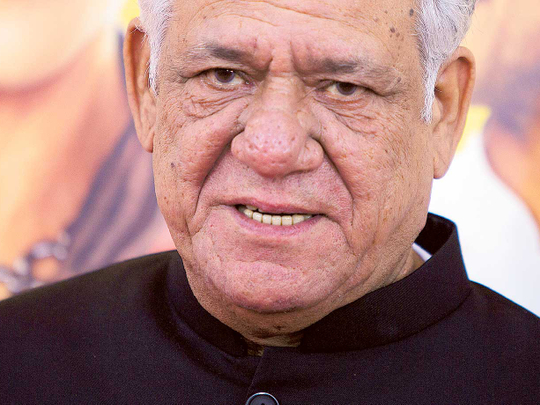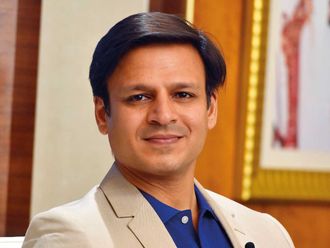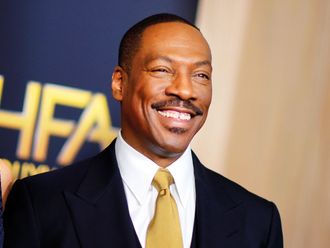
Did Om Puri have a premonition about his death when he spoke about in an interview just a fortnight ago? In retrospect, it would seem so, because he talked about “leaving the world” and that his legacy would be “visible” once he departed.
In one of his last interviews, which took place in a hotel in Mumbai on December 23, 2016, Puri said: “My contribution as an actor will be visible once I leave this world and the young generation, especially film students, will watch my films.”
The 66-year-old actor died of a heart attack at his residence in the same city early morning on Friday.
Today, as he leaves a void in the world of cinema with his untimely demise, the film fraternity is looking back at his vast contribution to showbiz. Theatre, television, Indian and British films, Hollywood and Pakistani cinema — he did it all and left a lasting impression. His legacy, celebrities said, will live on.
A lover of alternate cinema with socially relevant themes at its core, Puri said: “For me, the real hard-hitting cinema was between 1980s and 1990s where Shyam Benegal, Govind Nihalani, Basu Chatterjee, Mrinal Sen and Gulzar made some remarkable films.”
He worked in multiple projects with Nihalani and Benegal in films such as Aakrosh, Ardh Satya and Tamas. Both directors were overcome with emotion after Puri’s death. In shaky voices, both said it was too early to talk about it.
Just days earlier, he was happily interacting with young journalists to promote his upcoming political satire Rambhajan Zindabad. Casually dressed in a pair of baggy jeans and a black shirt, he was, as was his style, devoid of any airs about his stardom — a position not defined by fanatical, frenzied fans, but by the sheer following of his nuanced performances and undying passion for art.
He was — as the biography by his former wife Nandita Puri — rightly says, an Unlikely Hero.
The veteran actor, a recipient of the Padma Shri (India’s fourth highest civilian award), started his journey as an actor with a Marathi film, Ghashiram Kotwal, in 1972. If he featured in some intense dramas, he also balanced out his filmography with movies such as Mirch Masala, Jaane Bhi Do Yaaro, Chachi 420, Hera Pheri, Malamaal Weekly and more.
“There are two kinds of cinema — one is just for entertainment, the other touches your heart. Both have their own purpose,” Puri said.
When he was chairman of the National Film Development Corporation, Puri was focused on encouraging meaningful films. The National School of Drama alumnus was also president of Cine and TV Artistes Association.
More recently, he featured in Bollywood films like Ghayal Once Again and Mirzya, and Pakistani film Actor In Law. He also voiced the black panther Bagheera in the Hindi dubbed version of Hollywood film The Jungle Book.
Age did not slow him down. He was busy dabbling in multiple projects like Viceroy’s House, Tubelight and Manto.
The two-time National Film Award-winner was bestowed the Padma Shri in 1990.
His international career took off in 1982 when he featured in a small role in Oscar-winning film Gandhi. It also set the stage for him to explore more on foreign shores — his British films were My Son the Fanatic, East Is East and The Parole Officer, and his Hollywood movies included City of Joy, Wolf, The Ghost and the Darkness and The Hundred-Foot Journey.
In 2004, he was made an honorary officer of the Order of the British Empire for services to the British film industry.
While he had a glorious journey in the film world, his personal life went through turbulence. In 2013, his wife filed a case against him, alleging domestic violence. They separated, leaving him with only visitation rights to their son, Ishaan.
He was frank about his views — and just last year, he faced the brunt of it when a police complaint was filed against him for comments that were found to be insulting to Indian soldiers. In 2015, he spoke on the issue of cow slaughter in India. In 2012, he landed in a bit of a soup after he called Naxals “fighters not terrorists”.
But Puri remained fearless until the end — in his works and his words.













